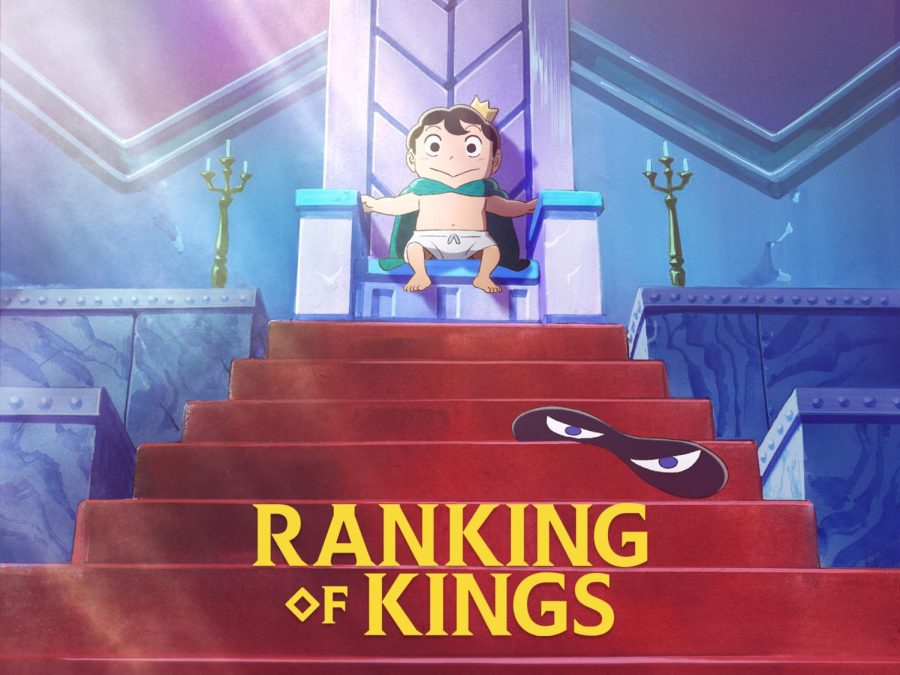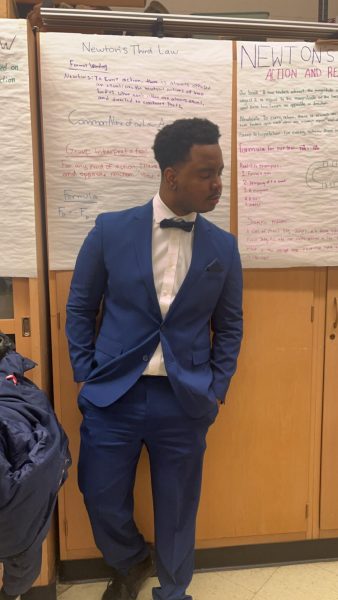Inspiring ‘Ranking of Kings’ Shows Viewers They Can Achieve Goals No Matter the Challenges
TV Review
Ranking of Kings’ captivating plot and cute art style make it a great anime to watch.
May 5, 2022
We all have our hopes and dreams. We are always willing to achieve them as long as we dare to embrace ourselves. After all, he who reigns within himself and rules passions, desires, and fears is more than a king.
The story “Ousama Ranking,” also known as “Ranking of the Kings,” is an anime television series adapted by Wit Studio (“Attack on Titan and Vinland Saga”) that develops an ideology of rule through the lessons learned through the show’s characters’ experience.
“Ousama Ranking” is the coming-of-age story of Prince Bojji, a child born to two giants, King Bosse and the late Queen Sheena. He was struck by a curse at birth which caused him to be born abnormally weak and as small as a human child who can neither hear nor properly speak. Yet, he is courageous because, despite many critiques from his people about his accession to the throne, he does his best and dreams of becoming the greatest of kings. One day, he meets Kage, a survivor of a now-deceased shadow clan, who understands Bojji.
Since the meeting between the deaf, so-called, “no good Prince,” and the thieving-diabolical Shadow, they grow to be great friends as the story progresses.
The story of “Ousama Ranking” reminded me of “The Seven Deadly Sins,” both having a similar aesthetic and taking place in a medieval fashion. But the main difference is the way each world works and the character interaction in the series. Kings’ rankings are determined by a committee that sends judges to the kingdom. The committee conducts evaluations to see how strong the King is and if their kingdom flourishes. Bojji’s father is ranked #7, as even though he is proclaimed as the strongest man in the world, some other kingdoms flourish even more.
The interactions between characters are presented beautifully. I am really drawn to the relationship between Bojji and Kage. Because they have no one but each other, they both feel like they are outsiders. Bojji isn’t able to hear or speak while everyone doubts him and ridicules him. Kage, on the other hand, is faced with discrimination and hatred due to the fact that he is possibly the last member of the shadow clan. The two boys bond over their struggles, and that ultimately brings them together.
However, the interactions between Bojji, his stepmother Queen Hilda, and his half-brother Prince Daida are more complex. Hilda limits Bojji from doing numerous things in quite a toxic way, believing that he’s just going to get hurt because of his disabilities while Daida takes advantage of Bojji’s disabilities and treats him like he’s worthless, claiming that Daida himself should be the next king.
One concept in the series I found very interesting was all the different races, such as demons, gods, and giants. The demons can grant wishes and must make them come true; with every wish they grant, however, the uglier and more wicked they become. This makes the demons seem like the victims of abuse rather than those who abuse and torment humans.
The anime has been judged by its art style, but don’t be fooled by how “cute” it looks because the show has such beautiful scenery and at the same time intense fight scenes.
Watching Bojji progress, blossom, and become king with a lot of influences in his life is a joy ride, especially when he has a friend like Kage who will inspire, encourage and defend him no matter what happens. They bonded with tears of sorrow accompanied by inner strength.
But the main message is very clear: no matter what happens, you can achieve what you want to achieve. No matter what troubles or disabilities you have, just like Bojji, you will slowly improve, even if it doesn’t mean physically. It’s all of the things he had fallen in love with, and even the curse that has affected him since birth. All those feelings of love give him the strength he needs to protect what he loves. A true king doesn’t need just power; he needs the support and love from himself and others.



